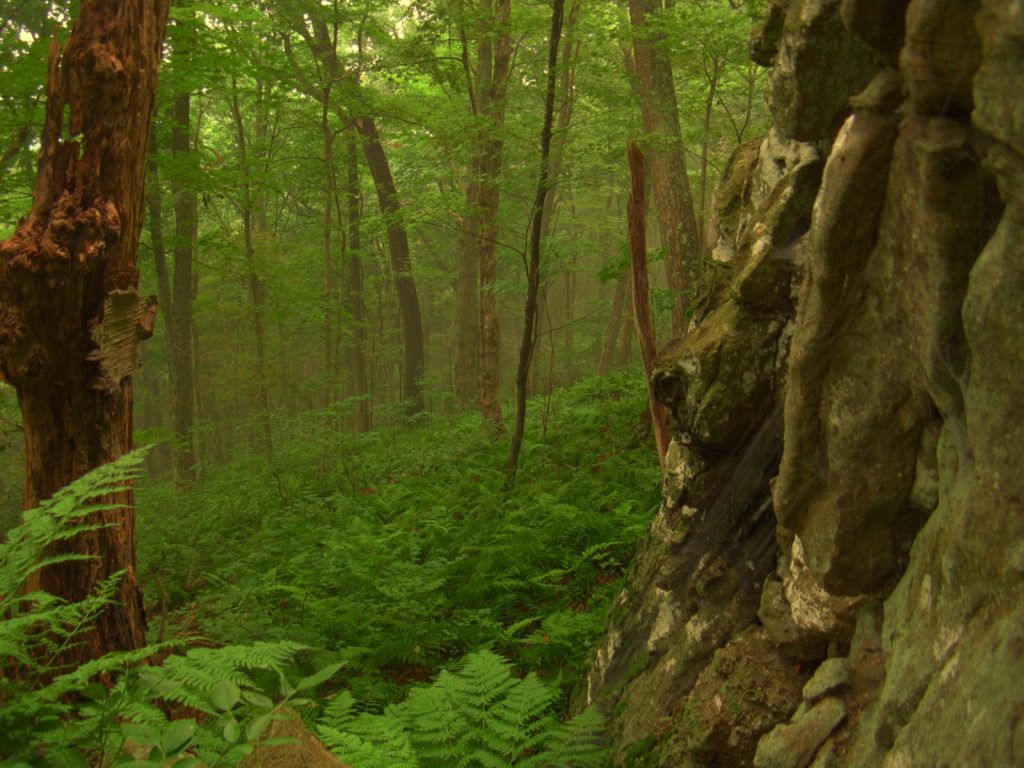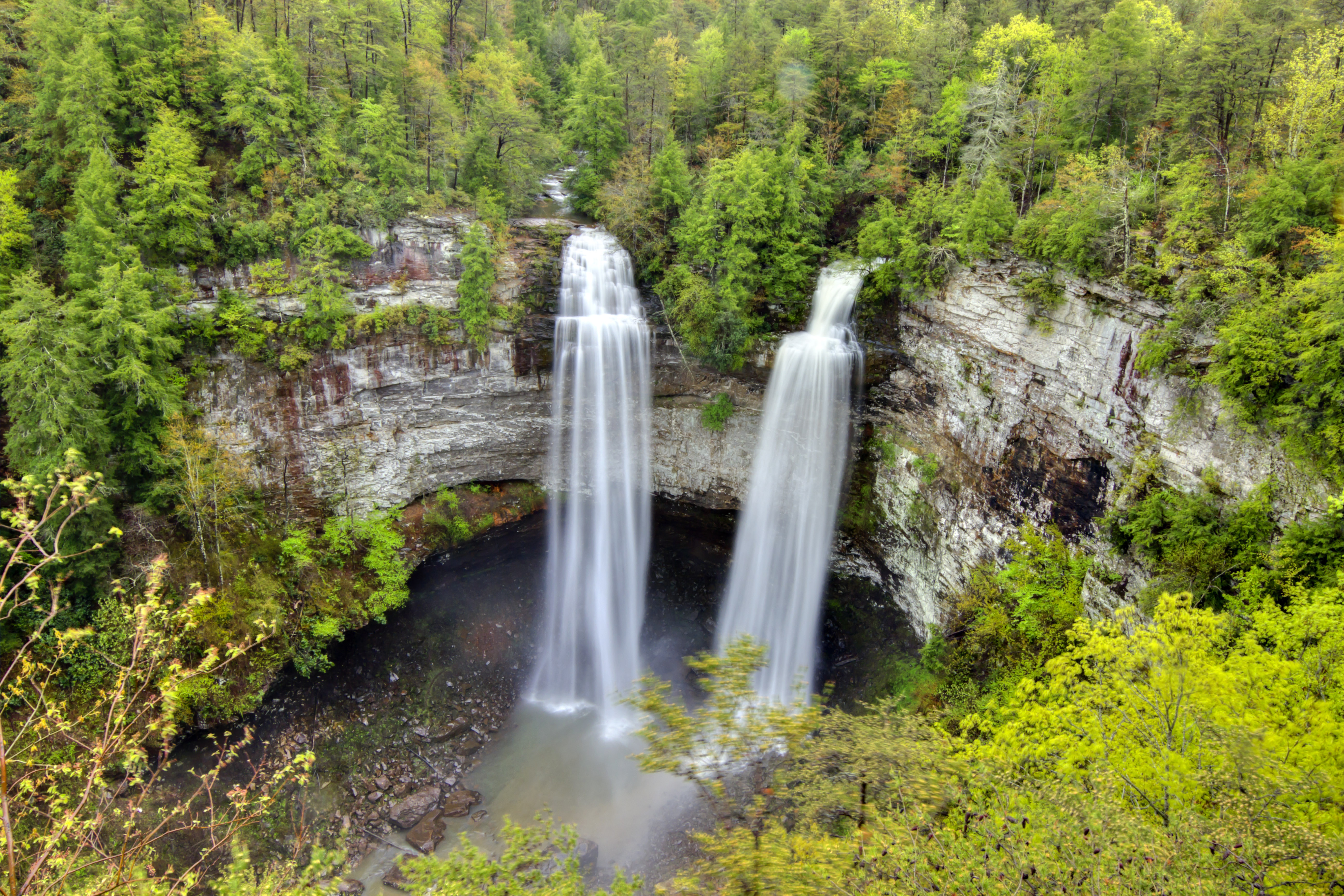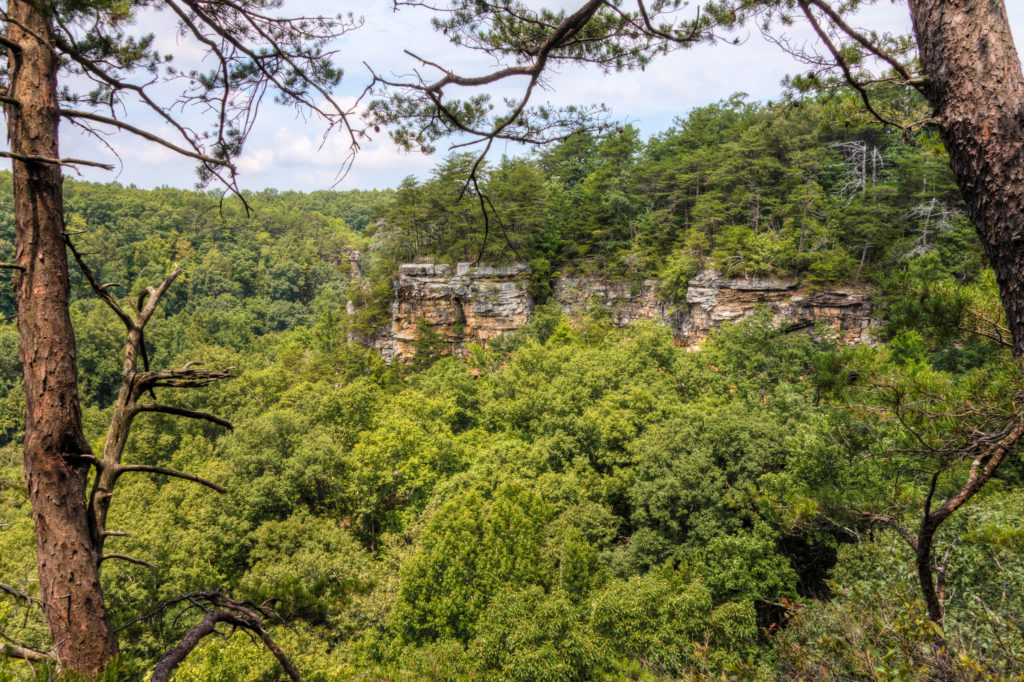TennGreen Land Conservancy has reached a historic milestone: protecting over 50,000 acres of land across Tennessee and the Mid-South region! TennGreen’s conservation efforts, both past and future, will benefit Tennesseans and wildlife at a time when Tennessee’s natural world faces unprecedented risks.
TennGreen, previously known as Tennessee Parks & Greenways Foundation, is Tennessee’s oldest accredited statewide land conservancy. Since its establishment in 1998, the organization has grown under the leadership of founder Kathleen Williams (Executive Director, 1998-2015), Steve Law (Executive Director, 2015-2022), and Alice Hudson Pell (Executive Director, 2022-present).
Some of Tennessee’s most famous parks and natural areas have been created or expanded by TennGreen, including Virgin Falls State Natural Area, Rock Island State Park, South Cumberland State Park (pictured), Fall Creek Falls State Park, Justin P. Wilson Cumberland Trail State Park (“Cumberland Trail”), and the soon-to-be-open to the public Ducks Unlimited Park. Project successes along the Cumberland Trail include land acquisitions at Black Mountain, Brady Mountain, Devilstep Hollow & the Head of the Sequatchie, Grassy Cove, Lone Star, Emory River, and Piney River Bluffs. In addition to protecting land for public enjoyment, TennGreen holds 60 conservation easements that perpetually protect over 12,000 acres of privately owned land. Additionally, the organization has been publicly recognized for its innovative annual fundraising event, the Hike-a-Thon, and its workplace culture, a winner of the Nashville Business Journal 2021 Best Places to Work award.
This announcement comes at a time when Tennessee’s rich biodiversity, open spaces, farms, and forests face unprecedented risk. According to the American Farmland Trust’s Farms Under Threat report, Tennessee could lose more than one million acres of high-quality farmland by 2040 if current trends continue.
Loss of farms and forests throughout the state will significantly affect Tennessee’s economy. The Tennessee Department of Agriculture notes the economic impact of forestry in Tennessee, totaling more than $21.7 billion annually, and the American Farmland Trust projects a loss of nearly 6,000 jobs in its “best case” 2040 projections.
“We’ve reached this milestone at a crucial time when it’s becoming clear to so many of us in Tennessee just how fragile our ecosystems are—the ones that provide us with food to eat, protect the water we drink, keep our air clean, and leave us in awe of nature’s beauty. Our state is facing astonishing growth, and many who come here seek a high quality of life that’s dependent on our ability to protect Tennessee’s natural character. We need the help of all Tennesseans to protect our vulnerable lands and waters before it’s too late.” —Alice Hudson Pell, TennGreen’s Executive Director
 Guided by its Strategic Land Conservation Plan, TennGreen directs its resources towards efforts that significantly impact the Tennessee landscape. The organization focuses on four key priorities: Tennessee’s waters (headwaters, land along rivers and streams, and wetlands); connected corridors of open spaces; areas with high biodiversity that face immediate risks from urban and suburban encroachment; and areas in need of publicly accessible nature (e.g., parks, wildlife management areas, state natural areas, etc.).
Guided by its Strategic Land Conservation Plan, TennGreen directs its resources towards efforts that significantly impact the Tennessee landscape. The organization focuses on four key priorities: Tennessee’s waters (headwaters, land along rivers and streams, and wetlands); connected corridors of open spaces; areas with high biodiversity that face immediate risks from urban and suburban encroachment; and areas in need of publicly accessible nature (e.g., parks, wildlife management areas, state natural areas, etc.).
In total, TennGreen has completed 153 conservation projects—with more than a third of those projects completed in the past five years. This astonishing pace is reflective of people in communities across Tennessee seeking to protect their natural assets.
“Often, our parks and outdoor areas serve as centers for community, which is essential for a flourishing society. Without these shared natural spaces to convene, we risk losing opportunities to connect with nature and with each other. Also, conserved land can create outdoor recreation opportunities, such as hiking, fishing, and camping, which drives tourism and enhances the quality of life for all of us living and working here in Tennessee.” —Alice Hudson Pell, TennGreen’s Executive Director
Click here for ways you can get involved in this crucial work.



